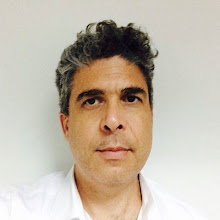Understanding Chavez
Here goes a quote from Venezuela’s Chief Prosecutor, Isaías Rodríguez explaining the psychology behind Chavez’s polemic proposal of indefinite reelection:
“President Chavez and I come from the llanos [Flat lands] and we have an Andalusian formation that makes us exaggerate so people can understand some things. Llaneros are exaggerated and that allows for a different communication than normal (…) It’s possible that this was just a llanero expression used by the President. It shouldn’t be seen as a threat. It’s just a way of telling things with a very personal language, a language that it’s not necessarily the language used by some people that read a specific political meaning in his comments and not the deep meaning from the colloquial llanero language.”
By the way, as Chief Prosecutor and in line with the separation of powers stated by the Venezuelan Constitution, Rodríguez's role is not to justify presidential delusions but to actually go after him if he dares to abuse power.


3 Comments:
It's real simple, Camilo. If the opposition wants to play the boycott game again, there will probably be a referendum on whether or not Chavez can serve unlimited terms. In such a scenario, it is the people who would decide whether Chavez could run repeatedly, not Chavez himself.
There's nothing out of the ordinary about unlimited terms of office. In many parliamentary systems there are no term limits. Helmut Kohl was the Prime Minister of Germany for 16 years, from 1982 to 1998. Felipe Gonzalez was the Prime Minister of Spain for 12 years.
Chavez is already allowed to run. He is proposing unlimited terms for a single reason: his own legitimacy.
That is what I call a man obsessed with power.
Chavez is not even arguing that unlimited elections are good for the country. He is plainly saying that they would neutralize a potential boycott.
That is simple, but it’s also wrong.
The Vatican has papal infallibility, and with people like the General Prosecutor trying to justify Chavez’s every move, they may end up having a referendum on it.
What's not good for the country is electoral boycotts.
It is quite clear to those who watch the country closely that the most undemocratic currents in Venezuela are in the opposition. The opposition knows that they lack popular support, so they boycott elections to try to delegitimize the electoral process. This is a classic anti-democratic ploy. Fortunately, the government has the the option of a referendum to quite democratically punish the opposition if it continues its anti-democratic tactics.
Post a Comment
<< Home